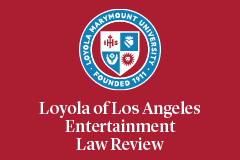Abstract
This article examines issues surrounding decentralized disciplinary systems and inconsistent enforcement against student-athletes who engage in criminal misconduct across the National Collegiate Athletic Association (“NCAA”). The NCAA recognizes the inherent conflicts of interest that arise when institutions are left to regulate their own recruiting practices. To negate these conflicts, the NCAA has established a robust disciplinary system, the NCAA Committee on Infractions, which oversees investigations into violations of NCAA Bylaws, reviews materials provided by the athlete and/or institution, and issues binding rulings which may include suspensions and fines. Yet the NCAA fails to see how the same conflict issues arise when schools are left in charge of investigating and imposing suspensions or disciplinary measures on their own star student-athletes for violating the law. While some institutions implement policies to ensure fairness, others deal with criminal misconduct allegations on an ad hoc basis. The resulting patchwork system of enforcement creates loopholes in which athletes can transfer from school to school to avoid appropriate punishment. This article argues that the NCAA has the knowledge and resources necessary to implement a centralized disciplinary enforcement policy. Such a policy would absolve individual institutions of the responsibility to issue fair discipline despite adverse incentives. Furthermore, stepping into a new area of regulation provides an avenue for the NCAA to remain relevant in an era of increasing conference autonomy, expiry of amateurism, and an ever-shifting college athletics landscape.
Recommended Citation
Matteson Landau,
NCAA Enactment of a Disciplinary Policy: Uniformity to Regain Institutional Legitimacy,
44 Loy. L.A. Ent. L. Rev. 163
(2024).
Available at: https://digitalcommons.lmu.edu/elr/vol44/iss3/2


